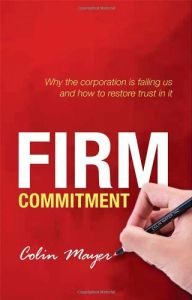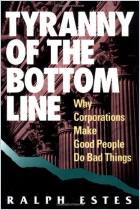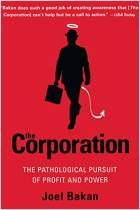Únase a getAbstract para acceder al resumen.

Únase a getAbstract para acceder al resumen.
Colin Mayer
Firm Commitment
Why the Corporation Is Failing Us and How to Restore Trust in It
Oxford UP, 2013
¿De qué se trata?
The modern corporation: good or evil?
Recommendation
The corporation has immense potential for good, but it must reinvent itself. Corporate fraud, environmental disasters, collapsing industries and financial meltdowns have been common events since the beginning of this century. Corporate operation is fundamentally flawed, but most solutions ignore the complex realities of how corporations function and who they serve. In this important, challenging work, Oxford professor Colin Mayer philosophically examines the arcane policies that brought economies to the brink and explains how corporations can become powerful wealth-creating forces for social benefit. getAbstract recommends Mayer’s thoughtful – if sometimes a bit dry – essay to the layperson interested in financial systems and the inner workings of corporations, and to corporate leaders and government officials seeking to create better governance and regulatory policies.
Summary
About the Author
Colin Mayer is a consultant and a professor at the Saïd Business School, University of Oxford, where he served as dean from 2006 to 2011.


















Comment on this summary